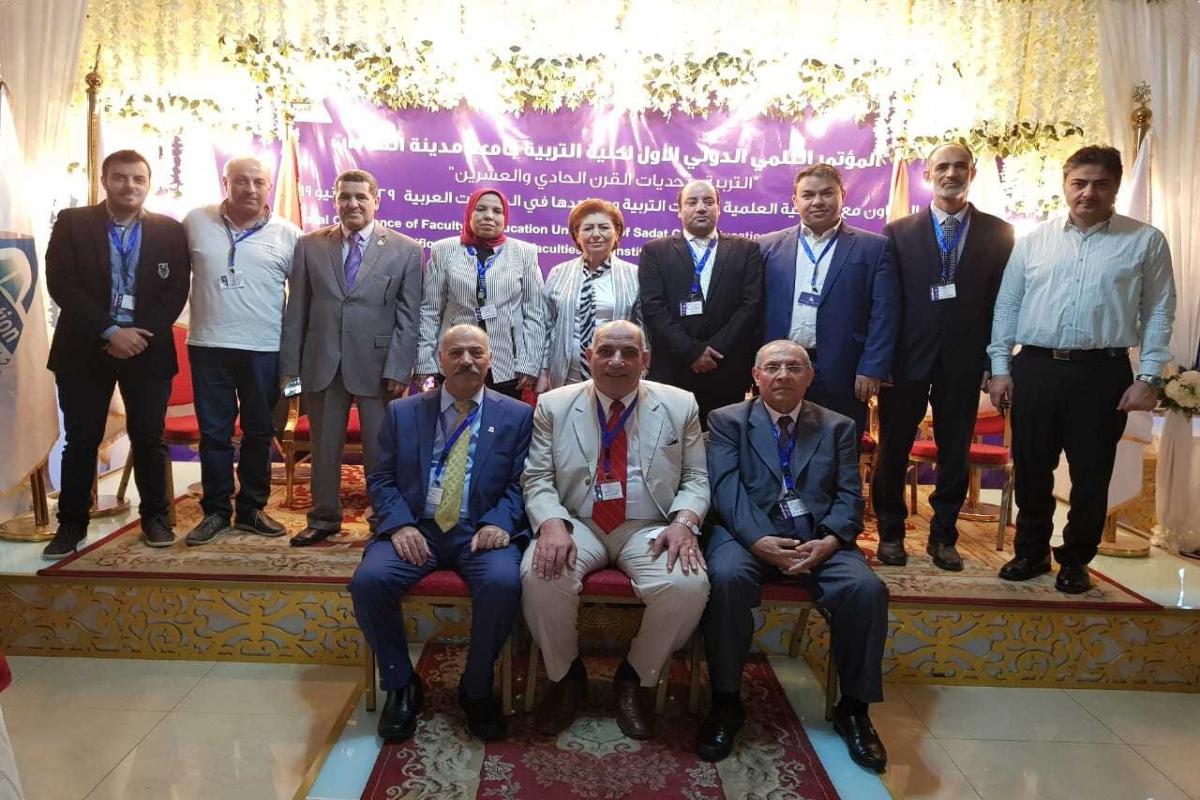
QOU, represented by Prof. Majdi Zamel, Dean of the Faculty of Educational Sciences , participated in the International Conference of the Faculties of Education at the University of Sadat City and in the meeting of the Scientific Society of Faculties of Education in Arab Universities on 29 - 30 June 2019 in cooperation with the Scientific Association of the Union of the Faculties of Education and its institutes in Arab universities. The conference took place under the auspices of Prof. Amr Ezzat Salama President of the Association of Arab Universities and Prof. Ahmed Bayoumi, President of Sadat City University.
The conference sheds light on the educational processes and their roles in light of the nature of the present age and the challenges that societies face in building human beings in the 21st century.
The Conference also aims to guide educational researchers towards building human capacities to maintain the continuity of societies, increase their ability to face challenges, and come up with solutions that contribute to facing the problems facing educational systems in order to build human capacities in different stages of education through representation of 33 research papers on 6 main topics with the participation of a number of deans of faculties of education and researchers from Palestine, Syria, Jordan, Lebanon, Oman, Kuwait, Saudi Arabia and the UAE.
Prof Zamel participated as a keynote speaker in a main session entitled: Education institutions and human capacity building”.
The conference concluded with 15 recommendations, including the development of the programs of the faculties of education to prepare teachers and equip them with the skills required in the 21st century to fit the digital development, and support innovation, creativity and critical thinking skills through providing various educational activities, providing students with the necessary skills for the future job market through the development of cooperative work skills, interpersonal skills, and the use of regional and global applications and experiences in support of the development of the 21st century skills to achieve high productivity, increase social and personal responsibility towards others, and to increase the level of learning outcomes of teachers preparation programs ; to ensure that they carry out their tasks efficiently and professionally in a distinctive manner , and draw the attention of planners and developers of educational curricula to the need to integrate the skills of the 21 st. century in all stages of education.